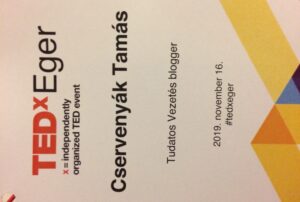Their approach was the following: they identified those people in the organisation who did something really well, boiled down the gist of their expertise into bite-sized microlearning units that can be consumed in 3 minutes through the mobile phones of their sales people across a huge number of their stores. In order to have benchmark data, they chose a product that they had been selling for years, so historical data was available, and seasonal differences were also well known. The research project lasted for 9 month from the commencement of the digital learning initiative, then they compared the newly collected data with the sales results of the preceding years. The difference was statistically significant: they experienced 13% growth on average for the duration of the program. Standard deviation was +/- 5%, so 8% growth was measured even in the worst case.
The data offered further interesting insights. In the first month of the rollout, sales growth soared to 30%, then the graph showed a gradual slowdown to about 10%. It roughly followed the Ebbinghaus curve of forgetting. They drew the conclusion that a one-time intervention is not sufficient, even if it is up-to-date and effective. Success was attributed to the fact that they used an on-the-job tool, which ensured that the moment of learning and the moment of application are very close to each other. However, as Carpetright HR Director pointed out, bottling and distributing expertise doesn’t result in lasting change of behaviour. They discovered that in addition to the digital solution, they need the personal touch too, to make the program even more successful: the possibility to learn from each other and receive coaching support. Therefore, they are moving forward on this route. Exactly the same direction where we at Act2Manage measured promising results recently, in taking a blended approach.
It is highly reassuring that such a credible source and methodology confirmed our considerations when developing our Act2Manage mobile app, designed for managers and employees. Instead of e-learning, providing mobile microlearning opportunities, taking an on-the-job approach, insisting on facilitation, placing a strong emphasis on turning knowledge into action and fostering behavioural change, and designing a blended program. We believe that more and more research studies will serve us with data-based evidence on how the possibilities offered by digitalisation can be best utilised in corporate learning.
Act2Manage Application
An interactive, gamification-based, practice-oriented leadership development application that provides immediate help and enables follow-up to the most common dilemmas.







